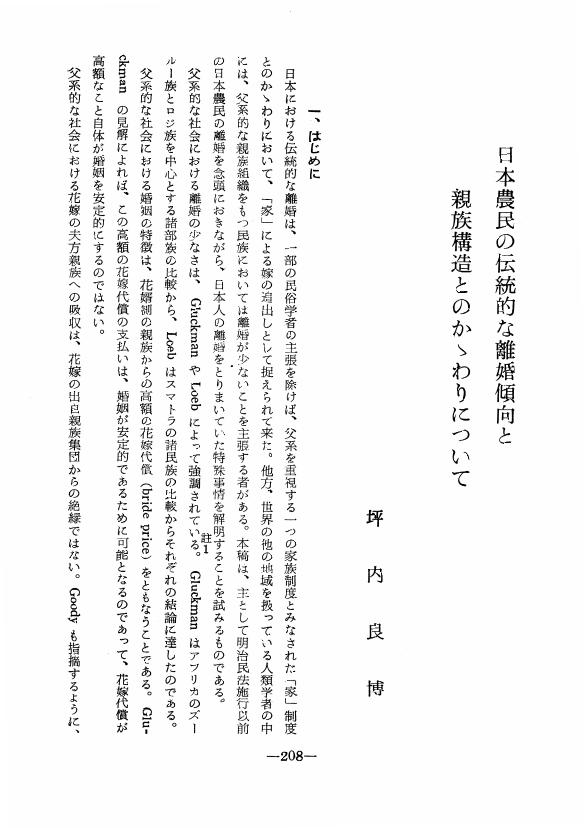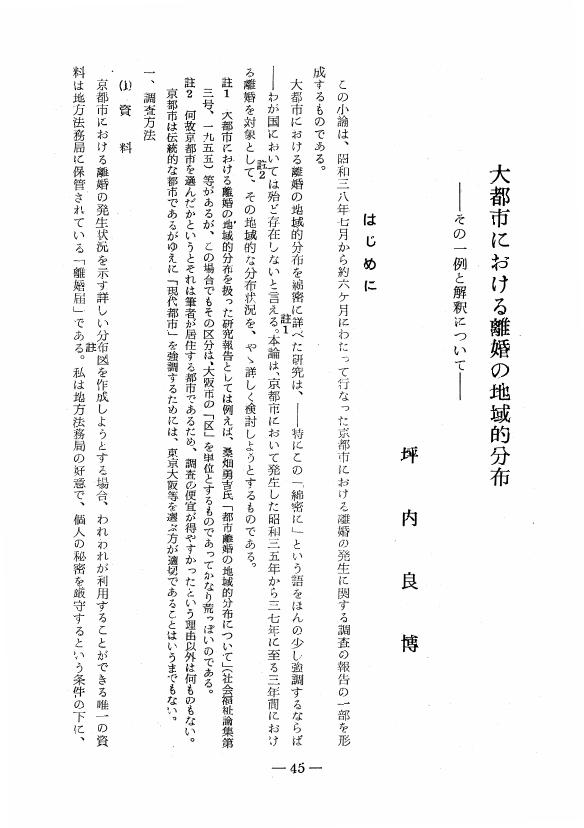26 0 0 0 OA バングラデシュの農村における出生力(<特集>バングラデシュの農業と農村)
この論文は国立情報学研究所の学術雑誌公開支援事業により電子化されました。Two sets of data were obtained on Bangladesh villages : a genealogical table of inhabitants of one village, Gobarchitra; and survey data on two villages, Gobarchitra and Panchkitta, obtained by using questionnaires. By analyzing these data, we examined the high fertility of the two villages. First, we used the genealogical data on Gobarchitra. Using a patrilineal table, we tested the reproductivity of the male population. Over five generations, we checked four pairs of father-son generations. By several estimation methods, we obtained several values. Second, we used survey data on the two villages. Questionnaires asked all the married females about their birth histories. Compared with nation-wide data, two villages showed comparatively high fertility. There was a difference in fertility between the two villages, which appeared to result from a difference in mean age at first marriage. No other factors were identified. From cohort analysis, we concluded that those two villages had traditionally different levels of mean age at first marriage. As for the government's family planning program, neither village showed much effect. Generally, there is a high relation between the diffusion of a family planning program and education. Unfortunately, we could not examine this as we had no data on education.
1 0 0 0 OA 日本農民の伝統的な離婚傾向と親族構造とのかかわりについて
- 著者
- 坪内 良博
- 出版者
- 社会学研究会
- 雑誌
- ソシオロジ (ISSN:05841380)
- 巻号頁・発行日
- vol.17, no.1-2, pp.208-218, 1971-10-31 (Released:2017-12-09)
1 0 0 0 OA 大都市における離婚の地域的分布 その一例と解釈について
- 著者
- 坪内 良博
- 出版者
- 社会学研究会
- 雑誌
- ソシオロジ (ISSN:05841380)
- 巻号頁・発行日
- vol.12, no.1, pp.45-59, 1965-07-31 (Released:2017-12-28)
1 0 0 0 OA <資料・研究ノート>マレー人家族における養子慣行
- 著者
- 坪内 良博 前田 成文
- 出版者
- 京都大学
- 雑誌
- 東南アジア研究 (ISSN:05638682)
- 巻号頁・発行日
- vol.13, no.2, pp.228-236, 1975-09
この論文は国立情報学研究所の学術雑誌公開支援事業により電子化されました。This is the second paper of our joint work on the substitutability of parental roles among the Malay peasants in Kelantan and Melaka, focussing on so called "adoption". The salient points we raise are as follows : (1) The need for adoption is felt on the part of adopters owing to childlessness or deficiency in number of children, or in order to find comfort in having small children during the post-parental period. (2) The relationship with real parents may be severed temporarily but not completely. The adoptee usually has double identity with the family-circles of both pro-parents and real parents. (3) The agent of adoption is not a categorized group but an individual or a couple. Adoption is regarded as a dyadic contract. (4) Kinship-fostering tends to be lineal pro-parenthood and adoption of relatives to be collateral. (5) We find more adoptions in Melaka than in Kelantan. In Kelantan. In Kelantan people mostly adopt children of their siblings, while children of the unrelated are frequently adopted in Melaka. These differences may be related to the standard of living and the degree of urbanization of each area. Through these observations we conclude that the concept of the nuclear family is not valid for the Malay family.




